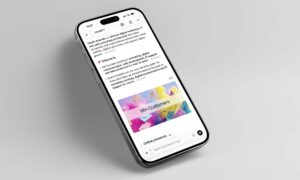To this day, the Internet has evolved from a simple communications network to a complex social medium. Although for many companies the World Wide Web is a new kind of “Yellow Pages”, in which their own website displays a more or less complex business card, today’s visitors expect more. In addition to the usual details such as location or information about the offer, websites can offer much more for visitors: Tips & tricks, background information on the offer or even a platform for exchanging information about the offer or the industry in general are only the first step.
A Simple Website Fits Many
Many people who are about to set out on their way to becoming self-employed are convinced: first of all, their own homepage has to be created. However, although a page is quickly set up and freely accessible to everyone, this does not mean that it is seen. Google is the gatekeeper here, who decides whether the site is interesting for visitors or not. And that’s what the site needs:
- Content or functions that match the search query
- Simple usability
- A fast loading page layout
- Time
In recent years, Google has also added more and more features that make it easier to find company details without going to the slow, awfully designed website and searching for “contact” in a far too small menu. Google MyBusiness supports your own website and forwards standardized information about your company such as location, contact information, photos and opening hours to the searchers.
Your Own WordPress Page
Exciting contents and functions are only represented on a few websites of young start-ups. The reason is clear: you are specialized in your service, not in creating texts, photos or videos. A blog like WordPress offers an elegant middle way here, because the essential function – the simple filing and regular sharing of new content – is already stored and easy to implement.
A good technical basis as well as web-optimized content ensure an optimal page layout, a standard WordPress theme ensures that no particularly “creative” designer moves the navigation to where you first have to look for it. Time is always a decisive factor for both people and Google: Will the page load fast? Is the domain new or do some links from other, older sites point to the address? Only when these criteria are met do visitors at least have the opportunity to find the page in the search results.
Nowadays, it is easy and simple to create your own page. Whether you are found or not can be compared to opening your own store: Just setting up the store and unlocking the door doesn’t make sure that customers pass by.
Be where the audience is
Although people in Germany spend almost 5 hours a day on the Internet (1 ½ hours mobile), they spend most of their time on social networks such as YouTube, Facebook, Twitter or Instagram. And these are the places where you can present your shop sign, your ideas and your personality. If you offer something that might interest others, you will get a relatively clear and quick feedback. In this context, your own website is only a platform for background information, additional functions or offers.
Be transparent
But social media offer much more possibilities than just showing your content: People can interact with each other, answer questions about products, react to negative feedback or try out new ideas. The same applies here as in “real” or “physical” life: Only a few people like to spend time with people who constantly talk about their product or their great business, are untouchable and never make mistakes (or at least want to appear so). This is also the great advantage of social media: you can look behind the scenes and quickly find out whether the brand or people (increasingly both) are authentic or just an artificial facade.
Content that fits
There are many ways of attracting attention to each product and service. For people who enjoy reading, blogs or longer Facebook posts are more interesting than for others who enjoy watching movies or videos on YouTube. For example, a book author tends to be better advised to fill a blog and place excerpts from new books on Facebook than to show her daily in a vlog (video blog, e. g. on YouTube) how she writes a new book on her laptop.
Conversely, a photographer today is hardly to be taken seriously if he does not regularly provide Instagram with exciting photos from his everyday life. Here too, authenticity is in demand: glossy pictures and perfectly illuminated video productions of the baker on the corner rarely appear natural.
However, it can still be crucial for some sites to distribute content as widely as possible and to use blogs, instagrams, podcasts and YouTube. The media should always correspond to the environment and expectations of the users of these platforms.
Is an own website absolutely necessary?
Not any more. Many people can be reached easily and directly via social media. Only for the own flexibility and for special functions, which Facebook & Co. are not able to illustrate, is the own web page a meaningful part of a comprehensive communication strategy.
Exciting future
Technological progress also does not pause for interpersonal communication. While Facebook was the hot shit the day before yesterday, many people are now active at Snapchat, discussing political world events with a maximum of 280 characters or teaching Alexa which music is the most beautiful? Whether we prefer to talk to holograms in the future or meet in the virtual reality for debating clubs: As a service provider or supplier of products, you should not miss the opportunity to be at the start here. Otherwise, your own shop will end up in a remote corner that no one can get past.
Most of the text has been translated with the great www.DeepL.com/Translator






